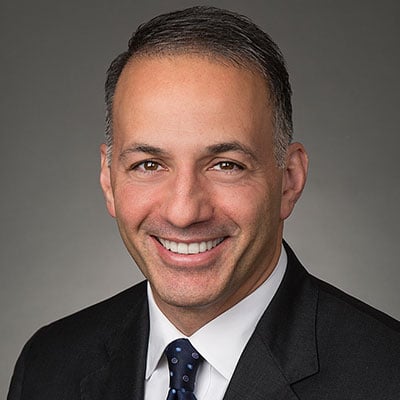OFAC and Delaware Department of Justice Sign Memorandum of Understanding Signaling Increased Information Sharing in Sanctions Compliance and Enforcement
On September 2, 2020, the U.S. Department of the Treasury’s Office of Foreign Assets Control (“OFAC”) and the Delaware Department of Justice (“Delaware DOJ”) signed a Memorandum of Understanding designed to enhance oversight of Delaware-regulated parties by both agencies (“the MOU”). The MOU provides notice of OFAC’s intent to leverage state-level collaboration to further U.S. economic sanctions compliance objectives, and of Delaware DOJ’s intent to leverage federal intelligence to prevent abuse of its renowned business entity registry by illicit actors.
The View from Washington
The MOU highlights the interconnectivity between federal and state enforcement activities when national security and foreign policy concerns are at issue. OFAC’s Director stated “[t]he MOU will allow OFAC and the State of Delaware to work together to shut down or otherwise disrupt the illicit activities of entities that should not be operating in the United States,” and it “will help OFAC to enforce its sanctions programs by more quickly identifying parties with an interest in blocked property.”1
OFAC administers a list of thousands of Specially Designated Nationals or Blocked Persons (“SDN List”), individuals and entities with whom U.S. persons may not do business. Valuable information regarding corporate ownership and operations available to state-level regulators may be critical to making and enforcing those designations.
For Delaware, which in December 2018 promulgated regulations requiring registration agents in the state to confirm that customers seeking to form Delaware corporations are not on the SDN List, the MOU represents another step toward preventing abuse of its favorable incorporation laws by “unscrupulous business entities.”2
Five Key Features of the MOU
The stated purpose of the MOU is “to maximize and improve compliance with and enforcement of the laws administered by OFAC and by Delaware DOJ.” The MOU contains five key elements: partnership coordination, joint investigations and enforcement, information exchange, personnel cross training, and assertion of common interest to protect privilege.
Partnership Coordination
Points of contact from both OFAC and Delaware DOJ will meet annually, or as necessary, to review “areas of mutual concern” and assess the terms of the MOU partnership. Designated representatives will include leadership from both agencies, as well as from OFAC’s Global Targeting Division. Including the Global Targeting Division in these meetings may suggest the potential for addition of persons to the SDN List based on information from Delaware DOJ investigations.
Joint Investigations and Enforcement
Under the MOU, OFAC and Delaware DOJ may collaborate in joint investigations, coordinate enforcement activities and provide mutual enforcement assistance to the extent permissible by law, and make referrals for potential violations of OFAC or Delaware statutes, as appropriate.3 Notably, the introduction to the MOU references “support of litigation against entities placed on [the SDN List]” as a priority of the partnership.
Information Exchange
In furtherance of the joint investigations noted above, OFAC and Delaware DOJ will establish “a methodology for exchanging investigative leads, complaints, information in support of investigations, and referrals of possible violations, to the extent allowable by law or policy.”4 This process may include the exchange of investigation files in certain cases as determined by agency policy, which could include information included in voluntary self-disclosures or administrative subpoena responses to OFAC.
Notably, OFAC and Delaware DOJ have also agreed to establish a methodology for allocation of assets of Delaware limited liability entities where Delaware courts have revoked their certificates of formation or incorporation. The MOU further contemplates notice to OFAC of such revocations and asset allocation procedures, and OFAC involvement in establishment of receiverships following such actions.5 This could contemplate the revocation of certificates of formation or incorporation by Delaware courts based on sanctions issues, potentially under recent amendments to Delaware law that provide for such revocation based on abuse or misuse of an entity’s powers, privileges, or existence.6 Notably, in at least four cases, Delaware DOJ has sought revocation of an entity’s formation based on its designation on the SDN List.7
Cross Training
The MOU memorializes OFAC and Delaware DOJ’s agreement to cross train investigators and staff of both agencies on the laws and regulations that each agency enforces, and to review matters of “common concern” to both agencies. These trainings, which will occur at least annually, suggest a commitment to ongoing collaboration and leveraging of the overlap between the OFAC and Delaware DOJ mandates, particularly in the area of preventing bad actors from leveraging corporate registrations to further activities contrary to U.S. sanctions.
Common Interest
The MOU also notes that sharing of information between OFAC and Delaware DOJ is done on the basis they share a common legal interest. This is intended to make clear that such information sharing will not constitute a waiver of privilege over otherwise protected materials, and will not constitute a public disclosure for purposes of the Freedom of Information Act (“FOIA”) or the Delaware Freedom of Information Act. Therefore, parties who have furnished information to OFAC or Delaware DOJ should be aware that they may not be notified prior to transfer of such information to the other agency.
Key Takeaways
- The MOU between OFAC and Delaware DOJ puts the public on notice that sanctions compliance and enforcement is a priority not only for the principal federal agency tasked with their administration, but also for the state prosecutor for one of the most widely used jurisdictions for corporate registration in the country.
- Delaware’s heightened focus on preventing misuse of its corporate business entity registry by malign actors likely signals increased oversight of Delaware-registered corporations.
- Increased coordination between OFAC and Delaware DOJ may lead to joint enforcement actions similar to OFAC’s relationship with the New York Department of Financial Services, which has led to prominent enforcement actions, including against non-United States headquartered financial institutions.
- For parties that disclose information to OFAC or Delaware DOJ, there is an increased likelihood that such information may be shared with the other agency, and could lead to parallel actions for potential violations of both federal and state laws.
1. U.S. Dep’t of the Treasury, Treasury Announces MOU with the State of Delaware to Strengthen Information Sharing, Press Release (Sept. 2, 2020) https://home.treasury.gov/news/press-releases/sm1113.↩
2. Del. Dep’t of State, New Regulations Mandate Enhanced Screening of Business Entities Formed in Delaware, Press Release (Dec. 13, 2018) https://news.delaware.gov/2018/12/13/new-regulations-mandate-enhanced-screening-business-entities-formed-delaware/↩
3. U.S. Dep’t of the Treasury, Office of Foreign Assets Control and Del. Dep’t of Justice, Memorandum of Understanding (Sept. 2, 2020) at 3, https://home.treasury.gov/system/files/126/state_de_doj_mou.pdf↩
4. Id. at 3.↩
5. Id. at 3. ↩
6. 6 Del. C. § 18-112; 8 Del. C. § 284.↩
7. See Jennings v. Masters International Inc., C.A. No. 2019-0756-AGB; Jennings v. Oyster Investments LLC, C.A. No. 2019-0758-AGB; Jennings v. Agusta Grand I LLC, C.A. No. 2019-0759-AGB; Jennings v. 200G PSA Holdings LLC, C.A. 2019-0760-AGB.↩




